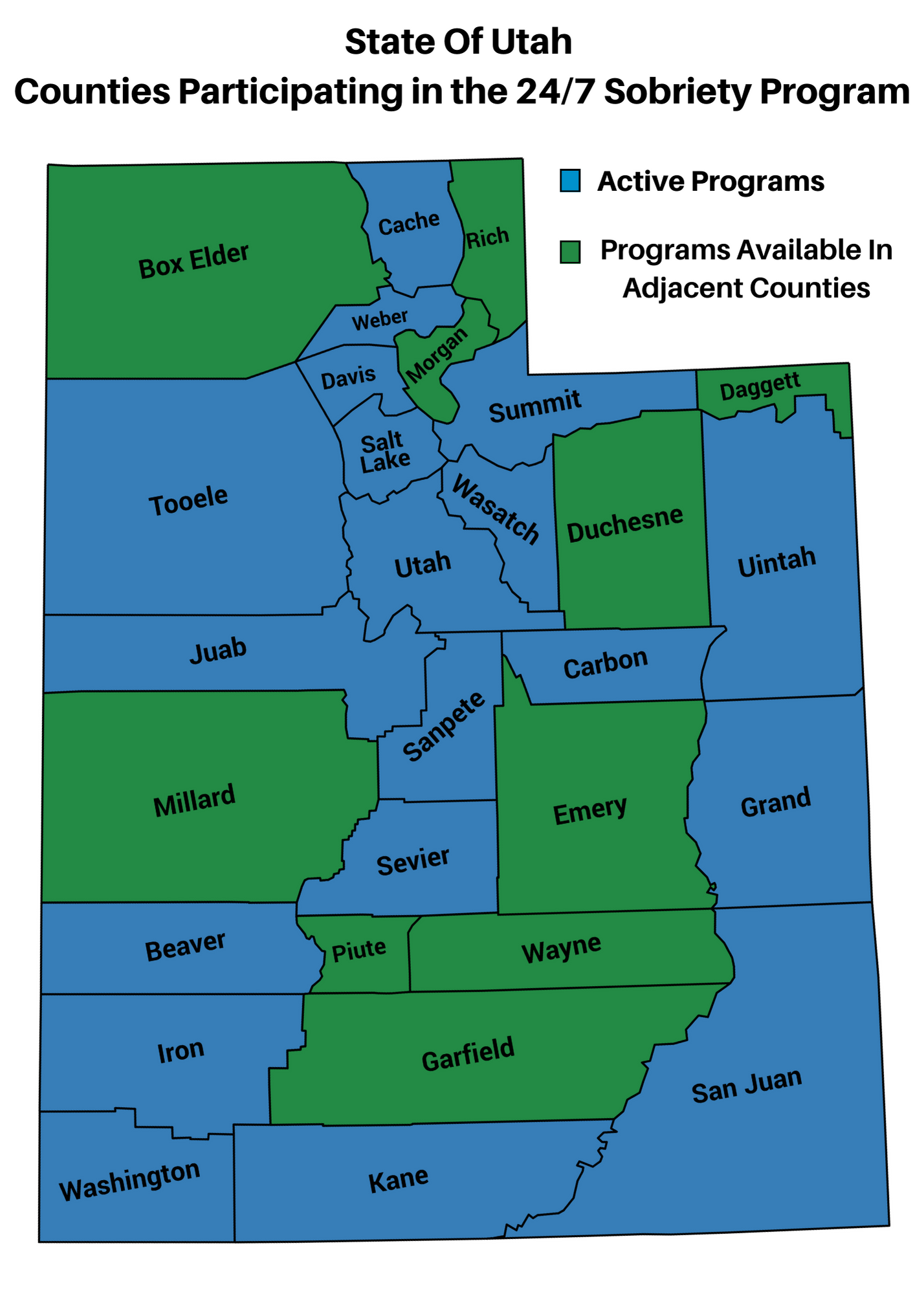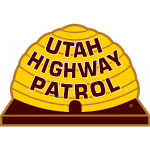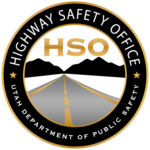24/7 Sobriety Program
The 24/7 Sobriety Program is a proven solution for reducing DUI fatality and re-offense rates. It provides accountability that allows DUI offenders to maintain employment and avoid jail time by staying sober.
About the 24/7 Sobriety Program: A Proven Approach
The 24/7 Sobriety Program originated in South Dakota in the 1990s. Its core principle is simple: daily alcohol or drug testing with immediate, certain consequences for non-compliance.
Participants must report to provide a breath sample twice daily (morning and evening). If they remain sober, they can maintain driving privileges and avoid jail. If they test positive, they face an immediate 8-hour jail sanction. Subsequent positive tests result in longer incarceration times, and a fourth violation removes the offender from the program, reinstating driver's license suspension and original jail time.
This model of face-to-face accountability, combined with immediate sanctions, has proven highly effective in helping participants manage their addictions. South Dakota has seen over 50,000 participants with an impressive 99.05% daily testing compliance rate. Beyond reducing DUI-related crimes, they've also observed decreases in other alcohol and drug-related offenses, such as domestic violence and disorderly conduct. Based on this success, the National Highway Traffic Safety Administration (NHTSA) endorses 24/7 as an evidence-based sobriety program.
The 24/7 Program in Utah
Utah launched a pilot 24/7 Sobriety Program in Weber County in 2017. As of 2023, over 1,400 offenders have participated, achieving a remarkable 99.5% compliance rate in daily testing. These participants have been held accountable while maintaining their driving privileges and employment, remaining productive members of society. Feedback from participants has been overwhelmingly positive.
Program Authorization & Oversight
The Utah Legislature authorized the statewide implementation of the 24/7 Sobriety Program under HB0026 in the 2021 General Session. Language regarding the program was also added to DUI sentencing requirements under Utah Code 41-6a-505.
The Utah Department of Public Safety (DPS) is tasked with implementing and overseeing the program, working closely with local law enforcement agencies statewide.
How the Program Works
The State of Utah supports counties participating in the 24/7 Sobriety Program by providing:
- Licensing Software: Allows participants to test at any participating county statewide.
- Remote Alcohol Testing Bracelets: For participants who cannot report to a testing facility twice a day.
Each county manages the daily operations, including:
- Providing staff for daily testing.
- Designating a facility where jail sanctions can be served for failed tests.
Note: Program implementation may vary slightly by county based on local resources and needs.
Eligibility for the Program
The 24/7 Program is available for any level of DUI offense, provided the individual's driver license can be reinstated.
For Courts and Government Entities: Use the dedicated certified request form to determine an individual's eligibility. The Driver License Division (DLD) will provide a certified record after you submit basic case information. [Access the Certified Request Form for Courts/Government Entities]
For Individuals (Non-Court/Government Entities): You can request a 24/7 certified record by submitting a DLD 266M form with a fee of $10.75. [Submit DLD 266M Form Here]
Mail your form to: Driver License Division, PO Box 144501 Salt Lake City, UT 84114
Once eligibility is confirmed, a judge can order a person into the 24/7 program as part of their sentencing. This may be in addition to other court-ordered treatment programs.
Program Costs (Offender Pay Model)
The 24/7 Sobriety Program operates on an offender-pay model, designed to be self-sufficient. Fees are split between the operating law enforcement agency and the Department of Public Safety.
Standard Fees:
- Breath Test: $2 per test ($4 per day for two tests)
- Urine Test: $6 per test
- CAM (Continuous Alcohol Monitoring) Bracelets: $10 per day
- Administrative Fee: $30 (assessed upon program entry)
The Department of Public Safety provides the web-based software and CAM bracelets to participating counties. Counties provide the personnel for daily testing and facilities for sanctions.
Driver License Reinstatement
For information regarding driver license eligibility and reinstatement related to impaired driving offenses, please visit the Utah Driver License Reinstatement web page.
Program Locations
The program is currently implemented in 19 counties throughout the state. An additional ten counties can court-order participants to adjacent counties for program enrollment.
Get Contact Information By County

Success Stories Video
Success stories highlighted in the video:
Derrick – “It’s forcing me to choose better habits.”
Timothy – “If I didn’t have this chance, I couldn’t work or supply for my family.”
Lawrence – “I can honestly say it’s made me a better person.”
Frequently Asked Questions
What is the primary purpose of the program?
The program’s purpose is to combat alcohol and drug abuse’s role in crime and criminal recidivism, particularly in the realm of DUIs. It is intended to motivate offenders to change their behaviors.
How does the program work?
The program works to keep qualified offenders accountable daily to stay sober and clean. They are put into a program of ongoing scheduled or random testing (twice daily for alcohol or random testing for drugs). Failure to pass the test results in immediate short-term incarceration. This system of continual monitoring paired with immediate consequences for failure has been demonstrated to be effective in causing offenders to change their behavior and maintain sobriety.
What are the benefits to the public?
The number of alcohol and drug-related traffic accidents and fatalities will be reduced, as well as criminal recidivism and incidents of other crimes where alcohol and drugs are often an instigating factor. Participants can continue to live with family and remain employed, encouraging them toward sober lifestyles. The program is very cost-effective since the offenders primarily fund it. In addition, the program provides an alternative to incarceration and reduces jail populations.
What if I am unable to go to a testing site twice a day?
The program allows for remote alcohol testing bracelets to be worn by an offender who cannot report to the testing site twice a day. Those reasons might include travel distance, work schedules, or lack of transportation. The bracelets measure alcohol every 30 minutes through the skin and transmit the data to a base station every night. The bracelets allow for greater flexibility while maintaining accountability. The bracelets are referred to as CAM bracelets (Continuous Alcohol Monitoring).
How long does an offender have to participate in the program?
A first-time DUI offender must be sentenced to the program for a minimum of 30 days. A second or subsequent DUI offender must be in the program for a minimum of one year.
What are the eligibility requirements to enter the program?
Any DUI offender age 21 or older is eligible to participate in the program if they are court-ordered to do so, regardless if they are a repeat offender, as long as they have a valid driver license. If the offender has a driver license suspended for an offense other than the DUI arrest or if they refused to submit to a chemical test at the time of their arrest, they are not eligible to participate in the 24/7 program. Once eligibility has been established, a judge can court order a person into the 24/7 program as part of their sentencing and may be in addition to other court-ordered treatment programs.
Does the 24/7 program work for DUIs that are drug-related?
Yes. The program utilizes random Urine Analysis (UA) tests to ensure sobriety for drug offenders. DUI metabolite offenders can also enter the program if the court orders.
Is the program available in every county?
Not at this time. The Department of Public Safety is actively working to make the program available to many individuals statewide. Several counties implementing the program are willing to allow individuals from other jurisdictions to participate using their testing sites.
Who do I contact if I have questions about the program?
Utah Highway Patrol Sgt. Brian Spillman is the statewide coordinator for the 24/7 Sobriety Program. He can be reached by email at [email protected].
For more information
24/7 Program Coordinator
Sgt. Brian Spillman
[email protected]

Utah's Impaired Driving Program
Lynda Hansen
385-290-5305
[email protected]
